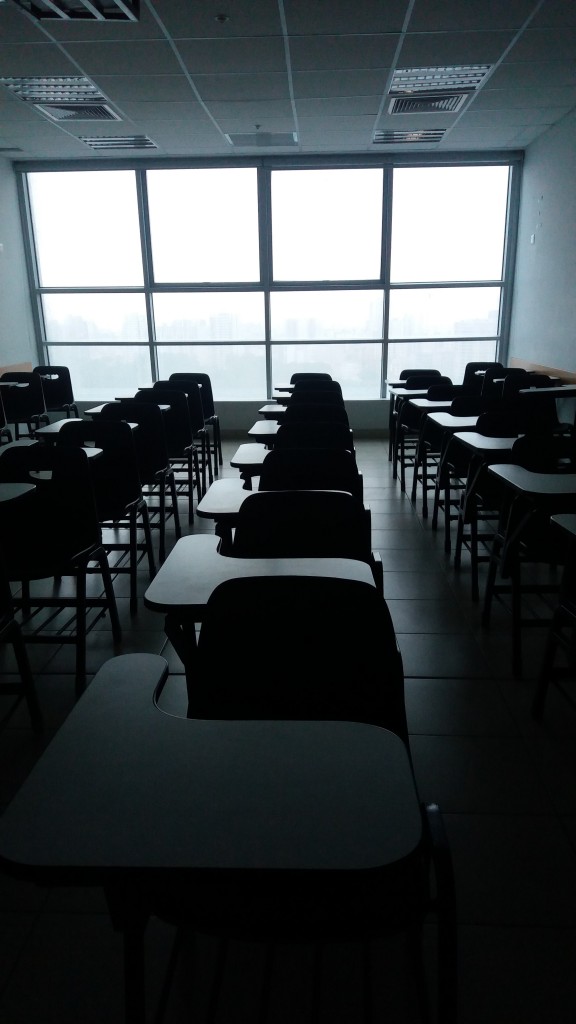I can’t remember ever giving a student a detention. And I know for sure that I’ve never given detention to an entire class. When I was in my first year of teaching, I remember one occasion where a group of students were continuously off task and after several reminders, I threatened them with the consequence of staying after school to serve some time. But I quickly realized that form of “punishment” couldn’t be my play: despite the defamatory cloud that term spouted in their minds, it seemed to be outdone by the fact that it was me proposing it; their cost-effective analysis rendered that spending a few extra minutes after school in Mr. Morris’ classroom in silence wouldn’t as bad as the term “detention” would suggest. They thought I was tolerable. Well, that’s how I read their smiles at my threat anyways.
I switched my stance on detentions after that experience. Now, when I get a new batch of students who are trying to learn me, I often get the question, “Mr. Morris, do you give detentions.” My response, “Heck no, why would I want to spend any more time around you kids than I have to.” In most teacher to student interactions, I find that a dash of sarcasm mixed with a pinch of reverse psychology goes down very smoothly. But in all honesty, I simply just don’t understand the true purpose of given a student or a class a detention.
Giving a detention is like sending a kid to the office. In regards to the latter, there are situations in which you may pull that trigger and hit that intercom and let that kid know that they have now just played themselves; a kid swearing at you or a kid doing something so incomprehensibly stupid in the presence of other students and yourself that there is no way that you can immediately correct it in that moment. Those are the two times you may consider sending a kid to the office. Those are the two times when a kid needs some one-on-one reflection time, and perhaps a short lesson on consequences, with an administrator. But detentions… what is the purpose of them?
Is it to correct behaviour that occurs during instructional time? If so, then why don’t you do that, um I don’t know, during the instructional time? If you don’t jive with what is going on in your classroom while you are teaching, stop your lesson, stare at the student or students who are disrupting learning, and address it then. I tell my three-year-old niece “use your words” when she tries to act like she doesn’t know English. Teachers, you are adults, you can do the same.
The more egalitarian thinking leads me to believe that this zeitgeist of “modern” day schooling derives from some teachers believing that a detention is a method of showing students that there are consequences for actions. And that is a fair way to look at it, especially if you think that your role as a teacher is aligned with the idea that you are the omniscient one, at all times, in the classroom. Giving detentions based on that rationale, at the least, makes sense. Albeit, it is a flawed way of thinking that also indicates you have a saviour complex. I don’t know, maybe I’m just a self-described passionate educator who fumes at the sight of seeing a bunch of kids walk out of a classroom in silence, all sour-faced, twenty to forty minutes after the school day is over. School is supposed to be a fun place. It’s supposed to be engaging. At the end of the day, kids should leave the building happy and want to come back tomorrow. They should be in love with the idea of education and learning, especially in elementary school.
Maybe I need to talk to some actual kids about this subject. Maybe my students will give me a better perspective on detentions. But what I do know, because I’ve seen it, is that the same teachers dish out the same detentions to the same kids and the same classes in September at the beginning of the school year and also in June, at the end of the school year. So… again I ask, what is the purpose of detentions?
[share title=”Share this Post” facebook=”true” twitter=”true” google_plus=”true”]

